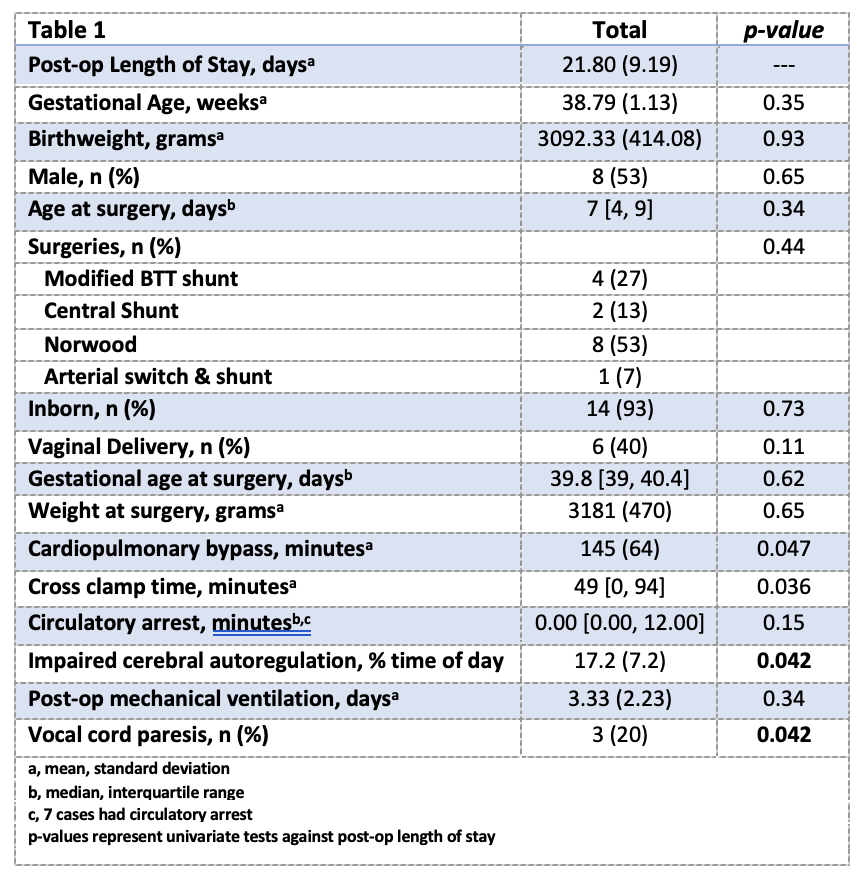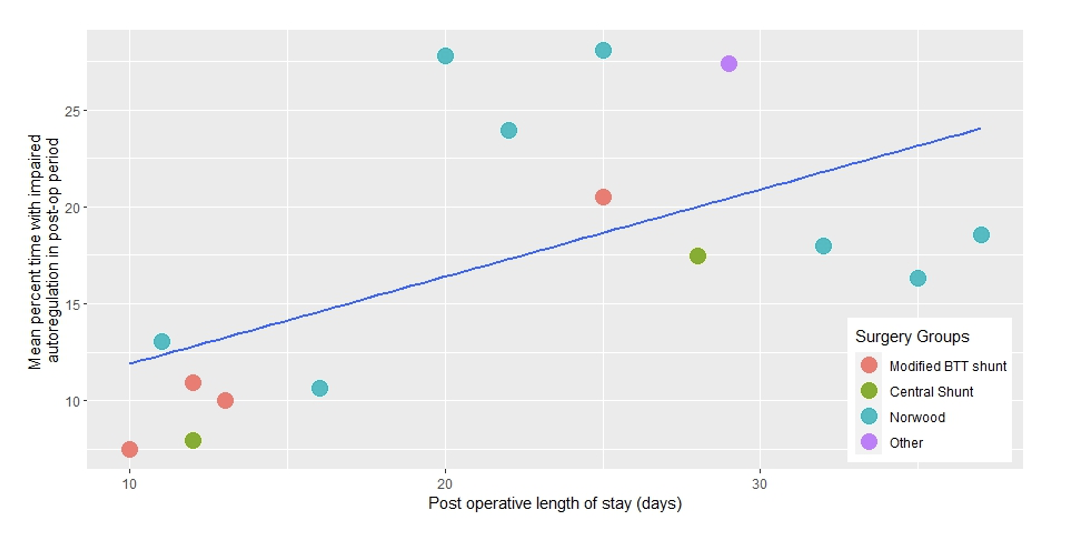Neonatal Cardiac Physiology/Pathophysiology/Pulmonary Hypertension
Neonatal Cardiac Physiology/Pathophysiology/ Pulmonary Hypertension 3
87 - Cerebral autoregulation impairment in the post-operative period is associated with post-operative length of stay in single ventricle neonates after first surgical palliation
Publication Number: 87.425

Theiju Sebastian, MD (she/her/hers)
Fellow
Columbia University Vagelos College of Physicians and Surgeons
New York, New York, United States- RS
Rakesh Sahni, MBBS (he/him/his)
Columbia University Vagelos College of Physicians and Surgeons
New York, New York, United States
Presenting Author(s)
First Author(s)
Background:
Brain injury can be acquired in the post-operative period of neonates with single-ventricle congenital heart disease (CHD). Near-infrared spectroscopy (NIRS) is a non-invasive clinical tool capable of monitoring regional tissue oxygen saturation to show cerebral oxygenation and has been used to define cerebral autoregulation (CAR), the mechanism that maintains constant brain blood flow despite fluctuations in systemic blood pressure. Impaired CAR has been shown to explain neurologic injury in this population. We hypothesize that impaired CAR can describe short term outcomes, such as length of stay, and hypothesize that more impaired CAR in the post-operative period is associated with longer length of stay.
Objective: To compare the percentage of time infants with single-ventricle heart disease spent with disturbed CAR in the post-operative period to length of stay after their first stage palliation.
Design/Methods:
Full term neonates with single-ventricle CHD were identified who underwent first stage palliation from 2019-2022 and survived to hospital discharge to home prior to stage two procedure. Exclusions included < 37 weeks gestational age, dysrhythmias, ECMO, brain hemorrhage, seizures. Autoregulation was computed for first 48 hours post-op using time domain methods between continuous blood pressure and cerebral NIRS using Pearson correlation (COx) coefficient of 5-minute windows data. Cox > 0.4 was considered impaired autoregulation.
Results: Table 1 shows demographic data (n=15). Mean (standard deviation) percent time during the post-operative period with impaired CAR was 17.2% (7.2) of the day and was associated with length of stay in linear regression models (β 0.6; p = 0.042) in addition to vocal cord paresis (β 10.2; p = 0.042). No additional variables from Table 1 were found significant in model development. Data in Figure 1 suggests that spending approximately >15% of the time per day with impaired autoregulation in the first 48 hours post-operatively appears to be associated with longer hospitalizations when accounting for vocal cord complications.
Conclusion(s):
In a small cohort of neonates with single ventricle CHD after first stage palliation, more impaired autoregulation in the immediate post-operative period was found to be associated with longer hospital length of stay when also controlling for vocal cord paresis. Larger cohorts need to be analyzed but this suggests impaired autoregulation may have immediate downstream impacts on short term outcomes after cardiac surgery. Reducing time with impaired CAR through blood pressure management strategies may improve outcomes.


